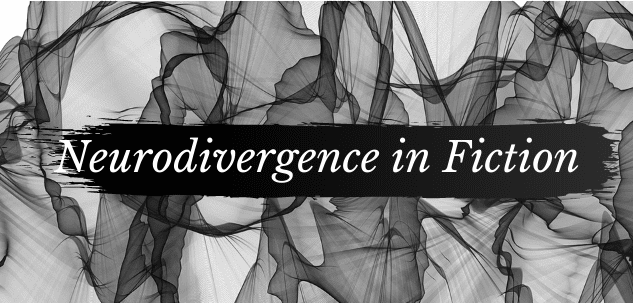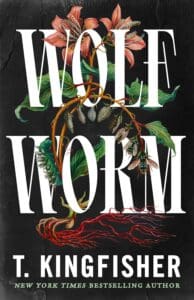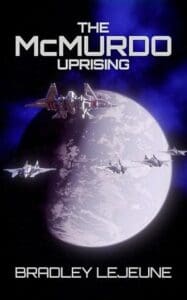
Hello all, and welcome to this week’s article for FanFiAddict’s series on Neurodivergence in Fiction. I cannot understate how appreciative I am for the overwhelming amount of support and enthusiasm I have seen for this series of mine; thank you! For the next several months we will be bringing you a guest post every Wednesday from a neurodivergent author. This will hopefully highlight some of the challenges that come with writing for a largely neurotypical audience, while also giving valuable insight to the craft itself and providing a window into the neurodivergent experience — at least through the lens of fiction.
(Note: I have opened up the series to non-authors and those with other mental health issues.)
This week, we are joined by fellow blogger and forthcoming debut author, Rowena Andrews! I think that this is a very important addition to the NiD series because it details their journey toward acceptance of themselves and that’s something that everyone can learn a lesson from.
As always, if you need to catch up on any articles, check out the landing page for the series here.
And, without further ado, here’s the article.
I do not like labels, I never have. Part of me has always rebelled at them because I am more than a mere word, or a phrase or any other way you want to stick something to me. Another part of me, wanted to hide from them because being different was ‘dangerous’ and threatened to draw a spotlight that I didn’t want for many reasons. But, I WAS different – I just refused to acknowledge it and went out of my way to adjust so that I wouldn’t draw attention to it, telling myself that it was just a ‘quirk’. Not 100% ‘normal’ whatever that means, but nothing noteworthy. Nothing that needed to be taken note of.
My ‘quirk’ was with words – whether reading, writing or listening.
I’ve always muddled letters, especially ‘m’ and ‘b’ and ‘o’ and ‘i’.
I’ve always had terrible handwriting, to the point where I can’t read it half the time.
I’ve always had to reread things because I’ve just skipped over part of what’s written on the page without meaning to.
It made and continues to make life challenging, but for over half my life that’s just what it was – a quirk or an annoyance depending on my mood. It was something I learned to work around from an early age, and maybe that’s why even now that I have the ‘label’ I still consider it a quirk because it’s how I grew up seeing it. I worked with it, largely because I had to. Books and reading were my escape from a less than ideal home situation, and there was a lot of expectation on me to do well at school. To be normal. To offset what was happening at home. To make sure eyes were elsewhere. I was and still am a voracious reader. I was the child who sped through the reception level boxes of books, tore through the tiny school library and soon commandeered all the library cards in the house to have access to more books. I wanted to live in those books, and a ‘quirk’ wasn’t going to get in the way of that.
I would reread things over and over to make sure that I understood it, especially if I was going to be asked about it at school. I would stay up far too late trying to memorise things for spelling tests, or if we were having to read aloud, because I knew I would make mistakes and get pulled up for it. That it would get attention. I learned to hide errors when I was speaking aloud with coughs, and to write even more messily than I did anyway to try and hide the spelling mistakes. After all, if they can’t see it, it doesn’t exist right?
But, it’s not one of those things that you can ever hide completely.
I’m in year 4 and getting pulled up for writing ‘shit’ instead of ‘sheet’ again, and looking at the page…and not understanding the difference.
I’m in year 7, getting pulled up for ‘careless spelling’ and terrible handwriting, even though my grades are still good.
I’m in year 11 and trying to revise and realising that none of the methods we’re being advised to use work for me, but the teachers just tell me to keep trying them.
I’m in my last year of college, taking extra A-levels to fill the time before uni, and I’ve just been handed pre-release material for an exam on bright pink paper.
I can’t read it.
Well, no. I can read it, but I couldn’t tell you anything about what I’ve just ‘read’, and I was sat in class unable to answer the questions and wondering for the first time what the hell is wrong with me because this isn’t a just a quirk anymore.
I was lucky, my tutor for that class knew me and that I was almost obsessive about learning, and so I found myself across in the college learning support centre almost immediately. Testing followed, and lo and behold at eighteen years old I had a name for my ‘quirk’
Dyslexia.
I will say that the testing was challenging, or rather the attitude was. Perhaps because I’d already gone through one lot of A-levels and all those years of school without being ‘noticed’ or because of how it had finally come to light. It wasn’t a great experience. Nor was one of the responses I got to it, where I was referred to as a ‘backwards dyslexic’ because a lot of the aids they tried to introduce me to involved colour, and colours – as that exam paper had proven are my nemesis. I’ve never been able to get on with mindmaps, or different coloured notes – all the revision methods we were told to use and I hated. It was not the best turn of phrase and one that stuck with me for a long time afterwards, and there I was not only with my ‘quirk’ exposed to the world but also getting told I was different from the difference.
It was a strange moment. On the one hand, I had answers and I hadn’t suddenly lost my ability to read – which for one terrifying moment in that Law class I had thought was what had happened. I also had an explanation for how my mind worked. On the other hand, I had a label that I didn’t want, and one that apparently I didn’t fit neatly under – the understanding that it was a spectrum coming much later.
It also felt like proof that the spotlight was bad, although the reasons I’d had for hiding it while growing up were gone.
It didn’t stop me from going to university though. I already had my methods for working around it, habits built up over the years and I loved learning and knew that I could do it. Yet, those words haunted me, and so I hid again. I never mentioned on my application that I had dyslexia. I never asked for aids. It was easier and harder than it had been in school. Here, my revision habits were my own – there was no one judging as I veered away from the visual methods, although they were still the ones that dominated in revision help sessions. While so much of the learning was independent that I could work at my own pace, and reread as much as I needed. However, there were other challenges. Presentations were an essential part of the course – which meant powerpoints and colour. If I was on my own, I just accepted I would lose some marks for having a less than visually appealing presentation, but if I was in a group, I kept silent – printed it off in black and white and tried to work from that. I did better on presentations where I had no notes because as soon as I try to read aloud I get muddled and so I was back to memorising things again, and sighing when the rest of the group commented on my lack of notes, or when the lecturer pulled me up about it.
I graduated. I started working. I never mentioned my dyslexia on any of the forms.
I was still hiding.
The change came when I started writing properly again. I’ve always written stories, I still have the novel I wrote when I was fourteen lurking somewhere. Mostly it was private and just for me, a way to get the ideas out of my head, and something I could do without worrying about other people judging my handwriting and spelling because no one was going to see it. Then I fell into fandom, and I was writing stories and posting them online and actually interacting with people who were reading my words. For the most part, it was great, to see the emotional reactions, to hear that people liked what I was doing, but there’s always going to be some dissenting voices.
Someone decided to have a go at me about the muddled letters – the fact that I had used ‘be’ instead of ‘me’ on more than one occasion, and to this day I’m not sure if they caught me on a good day or a bad day, or what made me sit up and state quite simply ‘I’m dyslexic’ and while I do edit it to the best of my ability, some things will slip through.
It was like a pebble starting an avalanche, although not as quick. It’s not something that could change overnight. After all, I had been hiding it since I was in primary school, and that’s a lot of ‘habit’ to unlearn.
Then I started postgrad and suddenly I was having to do presentations again and my anxiety spiked because I remembered the hell those had been at times. But this time, I raised the fact that I was dyslexic and the issues I had, feeling sick to my stomach the entire time and waiting for the judgement and comments. No one blinked an eye. Instead, they asked me what worked for me, and went out of their way to let me submit my work in ways that played to my strengths and made the whole process that much more accessible. I wasn’t a ‘backwards dyslexic’, I was just dyslexic… I had a different way of working, and as long as I did the work like any other student, that was all that mattered.
I was twenty-seven and I accepted that I was dyslexic.
Now the avalanche was really moving. I was what I was, and it wasn’t earthshattering in the negative sense that I had always expected. I told my work, and for the most part, they’re good at avoiding lots of colours and are happy to accept changes to presentations etc, to make them more accessible to me. I was writing more and more, and reading a lot more, because there was no more need to hide.
Just a need to make adjustments, but those are habits long ingrained.
As a blogger, it means that when I read a book, I have to allow time for re-reading at least 25% of the book, because my brain will just skip over parts and I will stop and not know what’s happened for the last half dozen pages and I have to go back. Or I will misread something that changes the meaning completely, and come up short in utter confusion. I find physical copies easier to read than digital, and they’re also easier to flip back to where I lost track, and when I’m tired I will generally switch to a paperback – so I have to factor in that when scheduling reads. It means I have to double, triple and sometimes quadruple check my reviews and even then the chances of a typo slipping through are very high because sometimes I just don’t register the error, and there is some irony in the fact that ‘book’ is one of my misspelt words. There have been days where I can spend 10-15 minutes trying to correct just one word because I will make the same error over and over again, even though I know it’s wrong and what I’m trying to correct it to. Those are the days when I have to walk away and take a break.
As a writer, it means accepting that I am going to misspell things sometimes to the point where even the computer can’t work out what I was trying to say and I have now learned to turn the spell-check off while I work so that I don’t get caught up trying to fix things as I go. It also means that I loathe copy editing with a fiery, burning passion because I know that I will inevitably add in more errors while correcting the ones that exist, which is why I outsource for that aspect of the process. It also means that certain things like author readings, are not something I will ever be comfortable doing, which is a shame because I love listening to them.
If I’m particularly tired or stressed, then all those issues will be worse and I’ve learned to accept that those days are not ones for writing – or sometimes even reading if it’s a particularly bad one – and I will use those days for research, making graphics or laying out posts on the blog. It’s still progress, which satisfies the part of me that wants to work and focus, but it draws attention away from the fact that the words won’t behave.
I’m a blogger. I’m a writer. I’m dyslexic. Why should one stand in front of the others?
It’s still just a quirk, only now it’s got a technical name and sometimes it makes life that little bit more complicated – and I wouldn’t have it any other way.
About the Author

Rowena Andrews spent her childhood searching for Dragons and talking to animals and started turning that into words when she was bored in class. She wrote her first book at fourteen and while it lives forever in the bottom of the sock drawer, the encouragement from her English Teacher meant the writing bug took hold and never went away.
Rowena has a BSc in Geography and a PG Diploma in Coastal and Maritime Societies and Cultures. She moved to Scotland for University, fell in love with the place and never left, and now lives and works on the east Fife coast.
When she’s not writing or reading, she’s hoarding dice and playing Dungeons & Dragons, and submitting to the whims of a demanding cat and dog duo.
Blog: https://beneathathousandskies.com/
Twitter: https://twitter.com/R_M__Andrews
Goodreads: https://www.goodreads.com/author/show/21582730.Rowena_Andrews
Amazon: mybook.to/TheRavynsWords



I’m a dyslexic author and reader, as well, and I can’t take notes on what I’ve read or anything like that. I also mind paperback copies much easier to read than digital. And I’ve never used colour aids, but from what experience I have, I know they wouldn’t do anything for me either. Oh, and I also hate labels.
“It’s still just a quirk, only now it’s got a technical name and sometimes it makes life that little bit more complicated – and I wouldn’t have it any other way.”